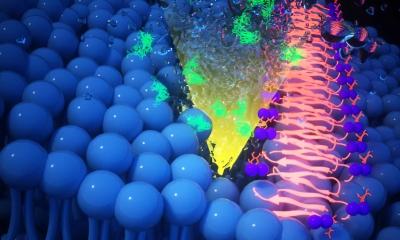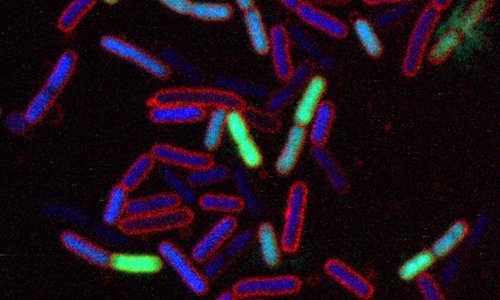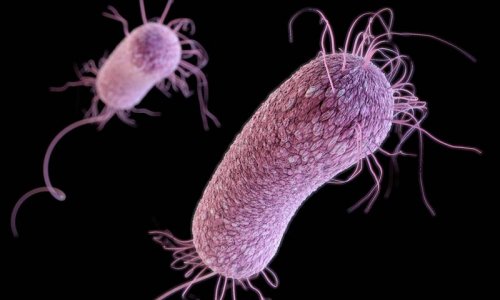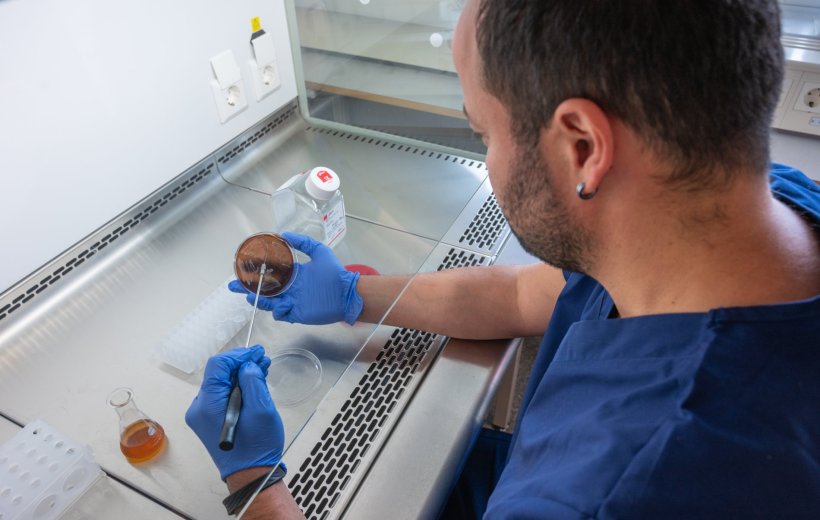
Image source: Linköping University; photo: Magnus Johansson
News • Infection treatment
Chemotherapy drugs to combat antibiotic-resistant bacteria
Antibiotic resistant bacteria are a threat to human lives, and yet the development of new drugs to treat bacterial infections is slow. A group of proven drugs used in cancer treatment for decades could possibly be the solution. A new class of antibiotics is now being developed by researchers at Linköping University (LiU).
The research was published in the Journal of Controlled Release.
Many drugs and drug candidates have proven highly effective in killing bacteria or tumour cells. The problem is that they also harm the patient, and they are therefore used very sparingly or not at all. When used to treat for instance cancer, they are delivered directly into the blood and spread throughout the body. But researchers at Linköping University are now developing a method to deliver strong compounds in a safer way, which they hope will open up new possibilities for treating various diseases.

Image source: Linköping University; photo: Magnus Johansson
“There are many pharmaceutical ingredients that are highly effective, but have serious side effects. I want to package molecules with our method, so that they are delivered specifically to the spot in the body where the bacteria or the cancer cells are. We can lower the dose and still get a good effect exactly where it’s needed,” says Frank Hernandez, associate professor in the Department of Physics, Chemistry and Biology (IFM) at Linköping University.
Frank Hernandez has taken particular interest in a group of drugs called nucleoside analogues that have been used since the 1960s. The are still used as the first therapeutic option for several cancers and viral infections. Research has shown that this type of molecules is also good at killing bacteria. In spite of this, nucleoside analogues are not currently used to treat bacterial infections, likely because they are associated with severe side effects, and there are other antibiotics available. The emergence and spread of life-threatening, multi-resistant bacteria has however created an imminent need for new alternatives to currently used antibiotics, and nucleoside analogues could have a role to play in this.
Our method combines two things: the ability to specifically target a bacterial infection, and the efficacy of drugs that have existed for a very long time and are often well proven, but which have so far been delivered in a way harmful to the patient
Frank Hernandez
Over the past ten years, Frank Hernandez and his colleagues have made several discoveries paving the way for the method they developed to package nucleoside analogues so that these can be delivered in a safer way. They have, in multiple studies, examined the properties of a type of proteins called nucleases. Nucleases can be found both in animals and in bacteria, but during the course of evolution, differences have emerged between bacteria nucleases and human nucleases, something that the researchers take advantage of. The research team has shown that the specific ‘fingerprints’ of nucleases can be used to recognise various bacteria.
“Our method combines two things: the ability to specifically target a bacterial infection, and the efficacy of drugs that have existed for a very long time and are often well proven, but which have so far been delivered in a way harmful to the patient,” says Frank Hernandez.

Image source: Borsa et al., Journal of Controlled Release 2023 (CC BY 4.0)
All nucleases have one thing in common: they function as biological scissors, cutting the DNA in cell genome. The method developed by the researchers takes advantage of these properties in specific nucleases from the bacteria to be treated. The drug is packaged so as to remain inactive until it comes into contact with the right nuclease. The bacteria nuclease cuts off the nuclease analogue, which then becomes active and kills bacteria in that particular spot. The researchers have named their strategy TOUCAN (Therapeutic OligonUCleotides Activated by Nucleases).
In their current study, the LiU researchers demonstrate how it works. They use the TOUCAN strategy on mice to kill Staphylococcus aureus bacteria with the nucleoside analogue floxuridine, which is used in health care to treat for instance colon cancer. The study results indicate that floxuridine packaged and delivered using the TOUCAN strategy allowed for efficient and safe treatment of the infection.
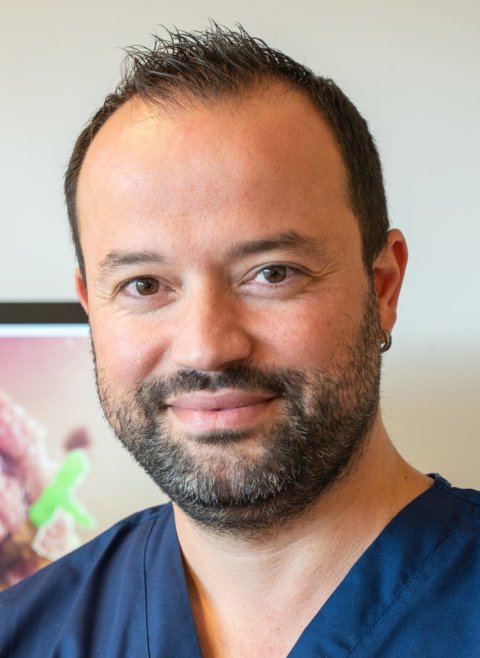
Image source: Linköping University; photo: Magnus Johansson
“I believe that the TOUCAN technology has a great potential to be a breakthrough in the treatment of infectious diseases”, says Baris Borsa, principal research engineer at Linköping University.
The researchers estimate that it will be another 5 to 10 years before this method is ready to use to treat bacterial infections in patients. They also see possibilities to use TOUCAN to reduce the side effects of nucleoside analogues in for example cancer and viral infections in patients. Next on their agenda is to find out how the body handles TOUCAN and to investigate whether there are any unwanted short or long-term effects.
This research was supported by the Knut and Alice Wallenberg Foundation and the Swedish Research Council. Some of the researchers behind the study have patented the method and have set up a company to develop TOUCAN for clinical use.
Source: Linköping University
26.09.2023



